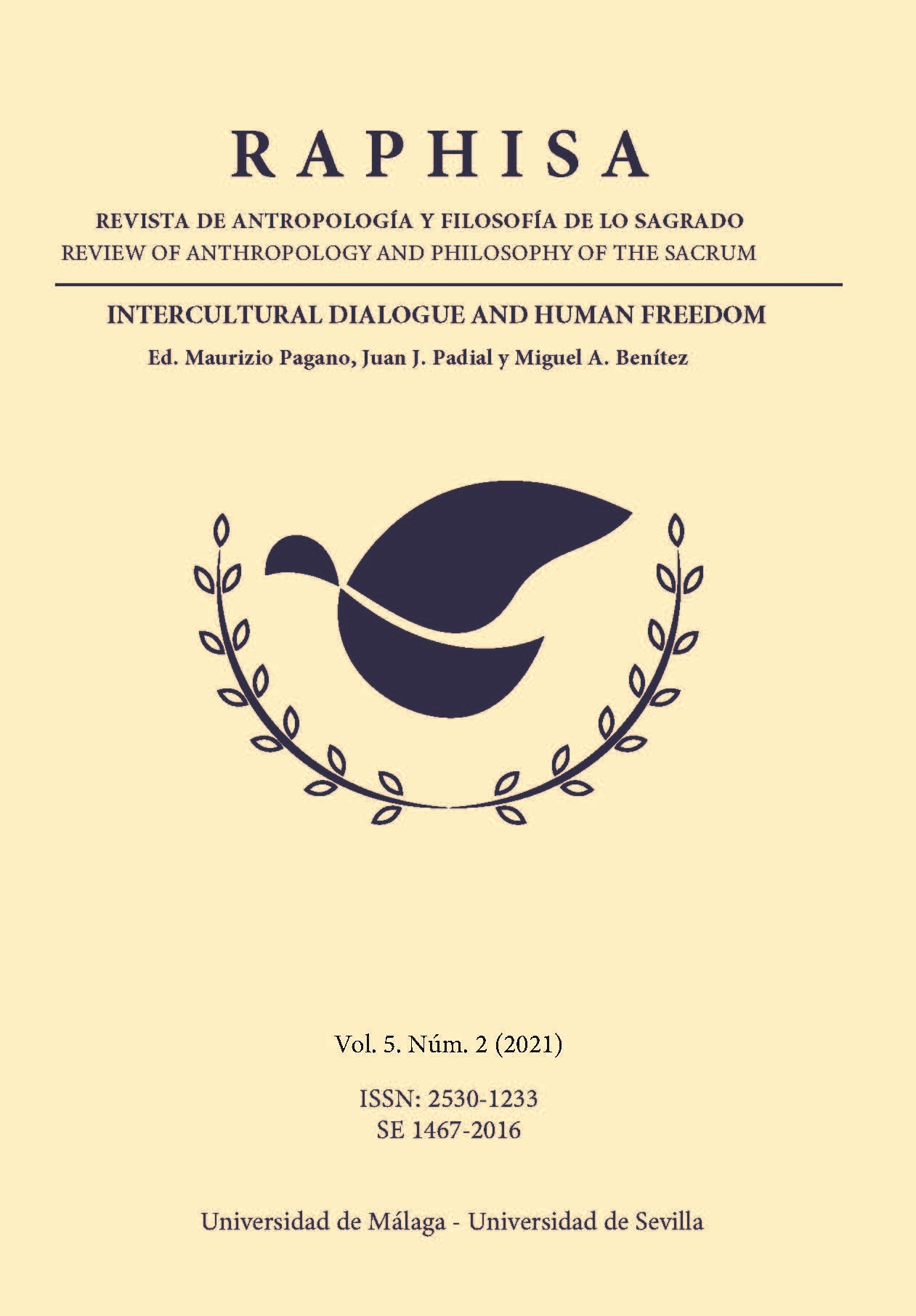Cultural Pluralism, Recognition and Forgiveness
DOI:
https://doi.org/10.24310/Raphisa.2021.v6i2.13407Keywords:
Dialogue, Cultural Pluralism, Recognition, Forgiveness, Solidarity, Dialogue, Cultural Pluralism, Recognition, Forgiveness, SolidarityAbstract
The experience of pluralism has allowed for a deepening of the dialogue between cultures throughout history. On the one hand, intercultural dialogue is an opportunity to reflect on this experience. On the other, it confronts the problems of intercultural relations. In the face of these problems, two elements that play a fundamental role are recognition and forgiveness. Fricker (2019) distinguishes between two conceptions of forgiveness: Moral Justice Forgiveness and Gifted Forgiveness. The first involves a moral requirement, while the second does not. However, the idea that forgiveness has something of a gift is rightful for unconditional forms of forgiveness, where forgiveness is given even in the absence of an apology, but, in conditional cases, on the other hand, we seem to have an obligation to forgive. We will analyse the role of forgiveness in the light of the notion of recognition within the framework of pluralism as a research horizon.
Downloads
Metrics
References
Fricker, M. (2019). Forgiveness. An Ordered Pluralism. Australasian Philosophical Review, 3(3), 241-260.
Gadamer, H. G. (1975). Wahrheit und Methode, Tübingen: J.C.B.Mohr (Paul Siebeck); Verdad y Método, Salamanca: Sígueme (1984).
García-Arnaldos, M. D. La relación mente-mundo en McDowell. Conocimiento y experiencia. Madrid: Ápeiron Ediciones. Colección Faber & Sapiens, 2018.
García-Arnaldos, M. D. “Responsabilidad y compromiso cívico” en Estudios de Filosofía 63 (2021), pp. 151-167.
González Arnal, S. (2004). “Is it Possible to overcome the Difficulties of Understanding Across Differences?” in F. Birules and I. Pena Aguado (eds), A Passion for Freedom. Action, Passion and Politics. Feminist Controversies. Pbl. de la Univ. de Barcelona, pp. 134-139.
Griswold, C. (2007). Forgiveness: A philosophical exploration. Cambridge University Press.
Honneth, Axel. (1997). La lucha por el reconocimiento. Barcelona: Crítica.
Iser, Mattias, “Recognition”, The Stanford Encyclopedia of Philosophy (Summer 2019 Edition), Edward N. Zalta (ed.), URL = <https://plato.stanford.edu/archives/sum2019/entries/recognition/>.
Lugones, M., & Spelman, E. (1983). “Have We Got a Theory for You! Feminist Theory, Cultural Imperialism and the Demand for ‘The Woman’s Voice.’” en Women’s Studies International Forum. Vol. 6, nº 6, pp. 573-581.
Mascia, Marco (ed.). (2007). Dialogo interculturale, diritti umani e cittadinanza plurale. Marsilio
McDowell, J. (1994/2003), Mente y mundo, Salamanca: Ed. Sígueme, 2003, traducción de Miguel Ángel Quintana Paz.
Nussbaum, M. C. (2016). Anger and forgiveness: Resentment, generosity, justice. Oxford University Press.
Nussbaum, M. C (2018). La ira y el perdón. Resentimiento, generosidad, justicia. FCE.
Scanlon, T. M. (2003). The difficulty of tolerance: Essays in political philosophy. Cambridge University Press.
Scanlon, T. (2018). Why does inequality matter? Oxford University Press.
Schmidt, Lawrence K., (ed.) (1995). The specter of relativism: Truth, dialogue, and phronesis in philosophical hermeneutics. Evanston, Illinois: Northwestern University Press.
Taylor, Ch. (2009) El multiculturalismo y la política del reconocimiento. México: FCE.
Taylor, Ch. (1994). “The Politics of Recognition,” in Multiculturalism: Examining the Politics of Recognition, A. Gutmann (ed.), Princeton: Princeton University Press, pp. 25–73.
Vattimo, Gianni. (1986). El fin de la modernidad, nihilismo y hermenéutica en la cultura posmoderna, Barcelona: Gedisa.
Wallace, R. J., Kumar, R., & Freeman, S. (Eds.). (2011). Reasons and Recognition: essays on the philosophy of TM Scanlon. OUP USA.
Walker, Margaret Urban (2006) Moral Repair: Reconstructing Moral Relations After Wrongdoing Cambridge: Cambridge University Press.
Downloads
Published
How to Cite
Issue
Section
License
License permitted by the journal: Public Domain. Authors retain the copyright and full publishing rights without restrictions.






